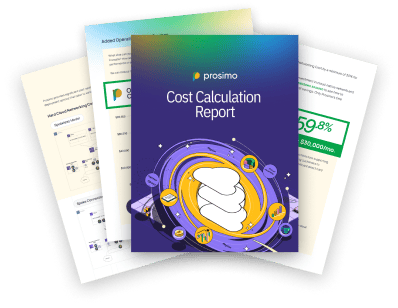In today’s digital age, multi-cloud platforms are becoming increasingly popular for businesses looking to optimize their operations and improve flexibility. These platforms allow organizations to use multiple cloud services from different providers, creating a more versatile and resilient infrastructure. However, managing multiple cloud environments can be complex and challenging. This is where artificial intelligence (AI) comes into play. AI has the potential to significantly enhance the user experience in multi-cloud platforms by automating processes, improving performance, and providing valuable insights.

Why Choose Hybrid or Multi-Cloud Solutions?
Businesses often opt for hybrid or multi-cloud strategies to leverage the strengths of various cloud providers while mitigating risks associated with relying on a single vendor. Hybrid clouds combine private and public cloud environments, offering the flexibility to move workloads between them as needed. Multi-cloud environments involve using services from multiple cloud providers to avoid vendor lock-in, enhance redundancy, and optimize costs. Both strategies provide the agility and scalability required to meet dynamic business needs.
Automating Processes for Efficiency
One of the primary benefits of AI in multi-cloud platforms is its ability to automate routine tasks. AI algorithms can handle a wide range of activities, from resource allocation to workload management, reducing the need for manual intervention. For instance, AI can automatically scale resources up or down based on current demand, ensuring that applications run smoothly without over-provisioning or under-provisioning resources. This not only saves time but also reduces operational costs.
Overcoming Challenges in Hybrid and Multi-Cloud Implementations
Despite their advantages, hybrid and multi-cloud environments come with their own set of challenges. These include:
- Complexity: Managing multiple cloud services and integrating them with on-premises systems can be complicated.
- Security: Ensuring consistent security policies and compliance across diverse environments is challenging.
- Interoperability: Seamlessly moving data and applications between different cloud platforms requires robust integration strategies.
- Cost Management: Keeping track of expenditures across multiple providers can be difficult, potentially leading to overspending.
Optimizing Performance and Reliability
AI can enhance the performance and reliability of multi-cloud environments. By continuously monitoring system performance, AI can detect anomalies and potential issues before they escalate into significant problems. Predictive data analytics powered by AI can foresee potential system failures and recommend preventative measures, ensuring that the infrastructure remains robust and reliable. Additionally, AI can optimize network traffic and data storage, minimizing latency and enhancing the overall user experience.

Best Practices for Implementing AI in Hybrid and Multi-Cloud Platforms
To maximize the benefits of AI in hybrid or multi-cloud environments, organizations should follow best practices such as:
- Unified Management: Implement centralized management tools that provide a holistic view of all cloud resources.
- Security Integration: Ensure that security measures are integrated across all platforms and adhere to industry standards.
- Data Governance: Establish clear data governance policies to manage data privacy, compliance, and integrity.
- Cost Optimization: Use AI-driven analytics to monitor and optimize cloud spending.
Enhancing Security Measures
Security is a critical concern for businesses using multi-cloud platforms. AI can strengthen security measures by identifying and responding to threats in real-time. Machine learning algorithms can analyze patterns and detect unusual activities that might indicate a security or data breach. AI-driven security systems can also automate responses to potential threats, such as isolating affected systems or blocking suspicious traffic, thereby protecting sensitive data and maintaining the integrity of the cloud environment.
Providing Valuable Insights
Data is a valuable asset for any organization, and AI can help unlock its full potential. In a multi-cloud setup, data is often dispersed across various environments, making it challenging to gain a comprehensive view. AI-powered analytics can aggregate and analyze data from multiple sources, providing actionable insights that can drive business decisions. For example, AI can identify trends in user behavior, enabling companies to tailor their services to better meet customer needs. It can also highlight inefficiencies in resource usage, suggesting areas for optimization and cost savings.
Simplifying Cloud Management
Managing multiple cloud services can be complex, but AI can simplify this process. AI-based management tools can provide a unified view of all cloud environments, making it easier to monitor and control resources. These tools can also automate administrative tasks, such as patch management and compliance reporting, reducing the administrative burden on IT teams. By streamlining management processes, AI enables organizations to focus on their core business activities rather than getting bogged down by cloud management complexities.

How Leading Organizations Are Adopting Multi-Cloud Strategies
Leading organizations are rapidly adopting AI in their multi-cloud strategies to stay competitive. Companies like Netflix and Airbnb use AI to optimize their cloud operations, enhance user experiences, and deliver personalized services. By leveraging AI, these organizations can manage their complex cloud environments more effectively, ensuring high performance and reliability. Their success serves as a blueprint for other businesses looking to harness the power of AI in their multi-cloud journeys.
Maximizing the Potential of Hybrid Clouds
Hybrid clouds offer a unique advantage by combining the benefits of both public and private clouds. AI can enhance hybrid cloud environments by providing intelligent workload management, ensuring that resources are used efficiently across both on-premises and cloud infrastructures. This flexibility allows businesses to maintain control over sensitive data while taking advantage of the scalability and cost-effectiveness of public clouds. AI-driven insights can further optimize hybrid cloud strategies, helping organizations to balance performance, security, and cost.
Enhancing Customer Support
AI can also improve customer support in multi-cloud platforms. Chatbots and virtual assistants powered by AI can handle common customer queries, providing instant support and freeing up human agents to deal with more complex issues. These AI-driven tools can learn from interactions, continually improving their responses and providing more accurate and helpful information over time. By enhancing customer support, AI contributes to a better overall user experience and increased customer satisfaction.
Future Prospects of AI in Multi-Cloud Platforms
The future of AI in multi-cloud platforms looks promising. As AI technologies continue to evolve, they will offer even more sophisticated capabilities for optimizing multi-cloud environments. Innovations such as advanced machine learning models and AI-driven orchestration tools will further enhance efficiency, security, and user experience. Organizations that leverage AI in their multi-cloud strategies will be well-positioned to stay ahead in the competitive digital landscape.
Conclusion
AI significantly enhances the user experience in multi-cloud platforms by automating processes, optimizing performance, and providing valuable insights. By leveraging AI, businesses can streamline operations, improve resource management, and enhance security across diverse cloud environments. AI-driven analytics offer actionable insights that can drive strategic decisions, ensuring optimal resource utilization and cost savings. As AI technologies continue to advance, their impact on multi-cloud platforms will only grow, driving further innovation and efficiency. Organizations that integrate AI into their multi-cloud strategies will not only enhance their operational capabilities but also ensure a superior user experience, maintaining a competitive edge in the digital landscape.
FAQs
How does AI automate processes in multi-cloud platforms?
AI automates processes by using algorithms to handle tasks such as resource allocation and workload management, reducing the need for manual intervention and improving efficiency.
What are the benefits of using AI for performance optimization in multi-cloud environments?
AI enhances performance by continuously monitoring system health, detecting anomalies, optimizing network traffic, and using predictive analytics to prevent potential failures, ensuring a robust and reliable infrastructure.
How does AI improve security in multi-cloud platforms?
AI strengthens security by identifying and responding to threats in real-time, analyzing patterns for unusual activities, and automating responses to potential security breaches, thus protecting sensitive data.
What insights can AI provide in a multi-cloud setup?
AI-powered analytics can aggregate data from multiple sources, offering insights into user behavior, resource usage, and identifying areas for optimization, which helps in making informed business decisions.
How can AI simplify the management of multiple cloud services?
AI-based management tools provide a unified view of all cloud environments, automate administrative tasks, and streamline processes, reducing the complexity and administrative burden on IT teams, allowing them to focus on core business activities.
